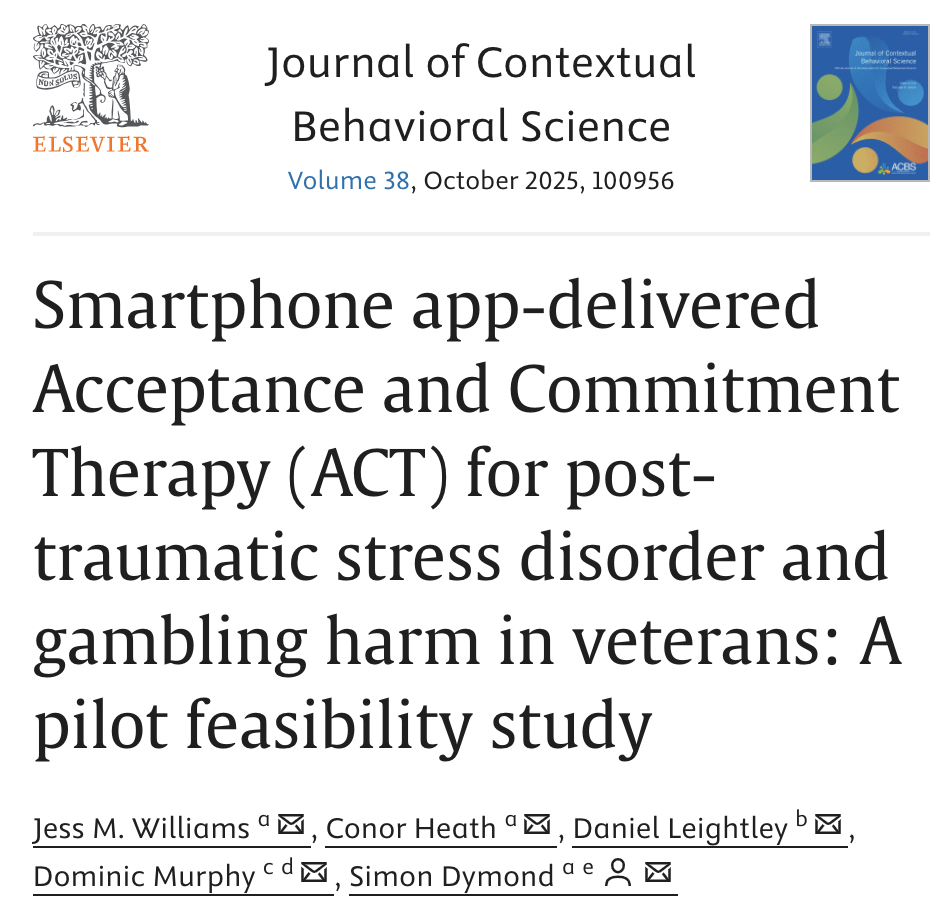Journal of Contextual Behavioral Science (JCBS)
Volume 38, October 2025
Authors
Jess M. Williams, Conor Heath, Daniel Leightley, Dominic Murphy, & Simon Dymond
Key Findings
- ACT Vet is the first smartphone-based ACT intervention sfor veterans experiencing PTSD symptoms and/or gambling harm.
- ACT Vet provides a tailored, evidence-based intervention aligned with the six core ACT principles. • Symptom improvements were maintained six weeks post-intervention.
- ACT Vet has scalability as a low-cost digital interventionfor PTSD and/or gambling harm.
Abstract
Gambling harm and post-traumatic stress disorder (PTSD) tend to be prevalent among veterans. Globally, help-seeking rates for gambling are low, and veterans may experience obstacles in accessing mental health support due to stigma. Digital health interventions may increase treatment uptake and improve outcomes for veterans. Here, we report findings from a pilot feasibility study of a novel smartphone application-based intervention, “ACT Vet”, based on Acceptance and Commitment Therapy (ACT) for veterans experiencing PTSD symptoms, gambling harm, or both. A 10-week, within-subjects design was employed with 24 veterans (21 men, 2 women, 1 undisclosed; Mage = 45.29 years; SD = 10.70). Outcome measures assessed PTSD symptoms, gambling severity, psychological flexibility, anxiety, alcohol use, suicidality, and loneliness. We also examined participants' quality of life and app usability and acceptability ratings. Findings demonstrated significant reductions in both PTSD and gambling symptoms across the intervention, with a corresponding increase in psychological flexibility. Alcohol use also decreased post-intervention. High usability scores suggest the app was well-received by participants. Overall, the sustained improvements post-intervention indicates the successful deployment of ACT-based methods in an app format. ACT Vet has potential scalability as a first-line digital intervention for PTSD and/or gambling harm.
